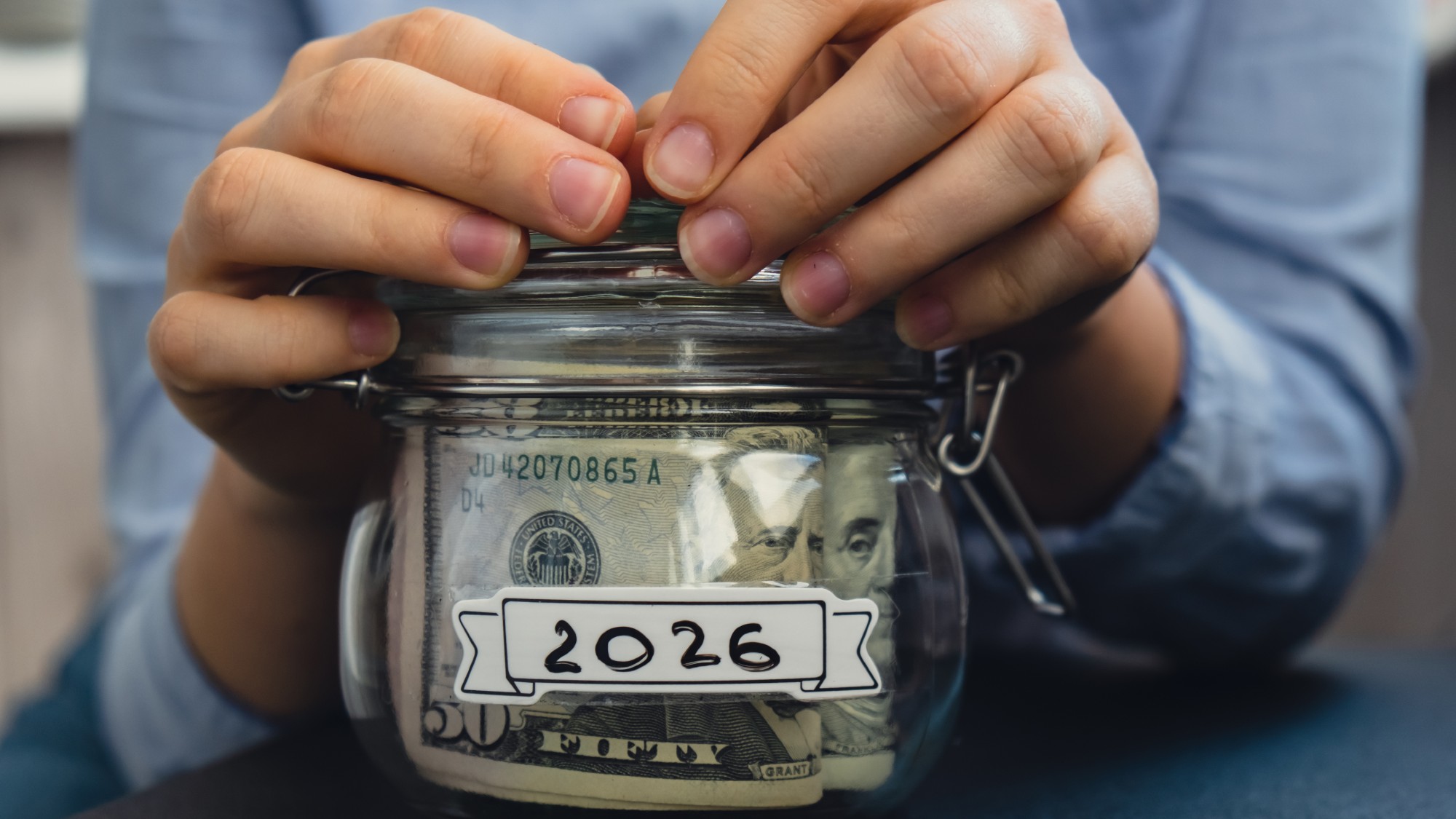3 steps to reach financial stability this year
Work toward peace of mind by reducing stress related to money


If you've been dreaming of financial stability, why not make this year the year that you actually achieve it? Even if it feels like a big leap from where you currently stand financially, with a little discipline and the right roadmap it is possible to get there.
According to Rocket Money, "being financially stable means you have enough money coming in to cover your expenses, as well as some extra funds to put aside for savings or potential crises." Not only does financial stability mean "that you have enough money to pay for the costs of life, but it also provides peace of mind by reducing stress related to money," freeing up that mental space to "instead focus on personal goals and overall well-being," explained Rocket Money.
Sound pretty nice? Here are steps you can take to make financial stability your new reality.
The Week
Escape your echo chamber. Get the facts behind the news, plus analysis from multiple perspectives.

Sign up for The Week's Free Newsletters
From our morning news briefing to a weekly Good News Newsletter, get the best of The Week delivered directly to your inbox.
From our morning news briefing to a weekly Good News Newsletter, get the best of The Week delivered directly to your inbox.
1. Create — and actually stick to — a budget
As Experian explained, "controlling your cash flow is a key first step for building financial stability." So to get yourself on the path towards financial stability, take the time to sit down and create a budget, or, as Experian defines it, "a plan for how you'll direct funds toward all areas of your financial life, such as necessary expenses, discretionary purchases, debt payments, personal savings goals and investing for retirement."
There are a slew of different budgeting methods you can try. For instance, the 50/30/20 rule encourages "dividing your after-tax income into three categories: 50% for needs (such as housing, groceries and health care), 30% for wants (like dining out, entertainment and hobbies), and 20% for savings and debt repayment (including retirement savings, emergency funds and paying off debt)," explains Rocket Money. Meanwhile, the 80/20 budget "encourages limiting your spending to 80% of your income and saving or investing the remaining 20%," per Rocket Money.
What's really important is to figure out something that will realistically work for you — as Experian highlights, "the best budget is one you can stick to."
2. Build up an emergency fund
Another critical ingredient in the recipe for financial stability is a well-stocked emergency fund. As SmartAsset notes, "an emergency fund is a way to protect yourself from the unexpected, whether that's an unanticipated job loss, an urgent major car repair or a surprise medical bill."
A free daily email with the biggest news stories of the day – and the best features from TheWeek.com
Just how much should you save in this fund? According to Experian, "experts suggest keeping between three and six months' worth of necessary expenses in a savings account, but you can start with a goal number that works for you—such as $1,000—and go from there." To get the ball rolling you might aim for "putting aside $75 to $100 each paycheck," though really "designating any amount toward savings will always set you ahead," per Kiplinger.
3. Pay off any debt you have
If you have debt, it's going to be that much harder to reach a place of financial stability. This is particularly applicable to any high-interest debt you may have, such as credit card debt.
To dig out of that hole, "calculate your total debt and plan monthly payments, aiming to significantly reduce, if not entirely clear, the debt by year-end," explains Kiplinger. And while you're at it, as Kiplinger highlights, "be sure to account for limited use of your credit cards through the next 12 months."
There are a number of other debt payoff methods you might try to make the process easier. For instance, with the debt avalanche method, you focus on first paying down the debt with the highest interest rate, while the debt snowball method prioritizes momentum by getting rid of your debt with the lowest balance first. Other methods include a debt consolidation loan and a balance transfer credit card.
However, on the whole debt payoff push, there's one "caveat," according to SmartAsset: "If you have a mortgage, you have some time to pay it off," so "prioritize all other debts before your mortgage."
Becca Stanek has worked as an editor and writer in the personal finance space since 2017. She previously served as a deputy editor and later a managing editor overseeing investing and savings content at LendingTree and as an editor at the financial startup SmartAsset, where she focused on retirement- and financial-adviser-related content. Before that, Becca was a staff writer at The Week, primarily contributing to Speed Reads.
-
 Political cartoons for January 10
Political cartoons for January 10Cartoons Saturday’s political cartoons include a warning shot, a shakedown, and more
-
 Courgette and leek ijeh (Arabic frittata) recipe
Courgette and leek ijeh (Arabic frittata) recipeThe Week Recommends Soft leeks, tender courgette, and fragrant spices make a crisp frittata
-
 Trump’s power grab: the start of a new world order?
Trump’s power grab: the start of a new world order?Talking Point Following the capture of Nicolás Maduro, the US president has shown that arguably power, not ‘international law’, is the ultimate guarantor of security
-
 What to know about the rampant Medicare scams
What to know about the rampant Medicare scamsthe explainer Older Americans are being targeted
-
 How to financially prepare for divorce
How to financially prepare for divorceThe Explainer Facing ‘irreconcilable differences’ does not have to be financially devastating
-
 Why it’s important to shop around for a mortgage and what to look for
Why it’s important to shop around for a mortgage and what to look forThe Explainer You can save big by comparing different mortgage offers
-
 4 ways to save on rising health care costs
4 ways to save on rising health care costsThe Explainer Health care expenses are part of an overall increase in the cost of living for Americans
-
 4 ways to streamline your financial life in 2026
4 ways to streamline your financial life in 2026the explainer Time- and money-saving steps
-
 4 tips to safeguard your accounts against data breaches
4 tips to safeguard your accounts against data breachesThe Explainer Even once you have been victimized, there are steps you can take to minimize the damage
-
 Received a windfall? Here is what to do next.
Received a windfall? Here is what to do next.The Explainer Avoid falling prey to ‘Sudden Wealth Syndrome’
-
 How to save more for retirement next year
How to save more for retirement next yearthe explainer Secure yourself a suitable nest egg
